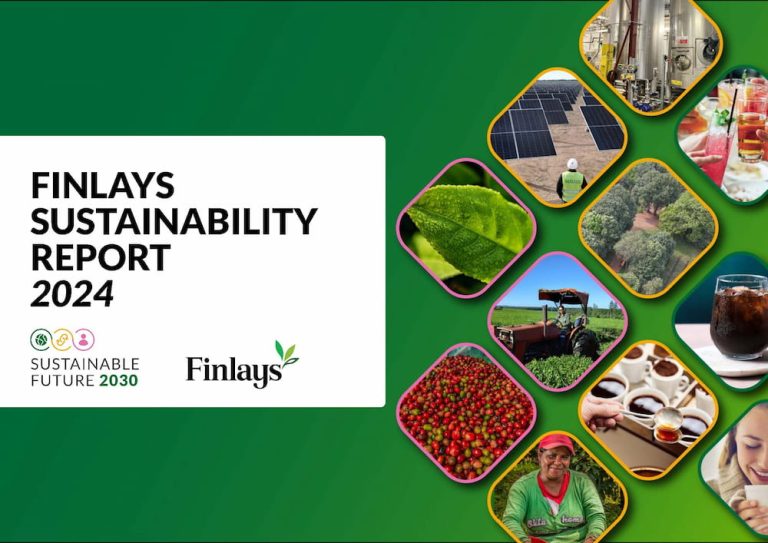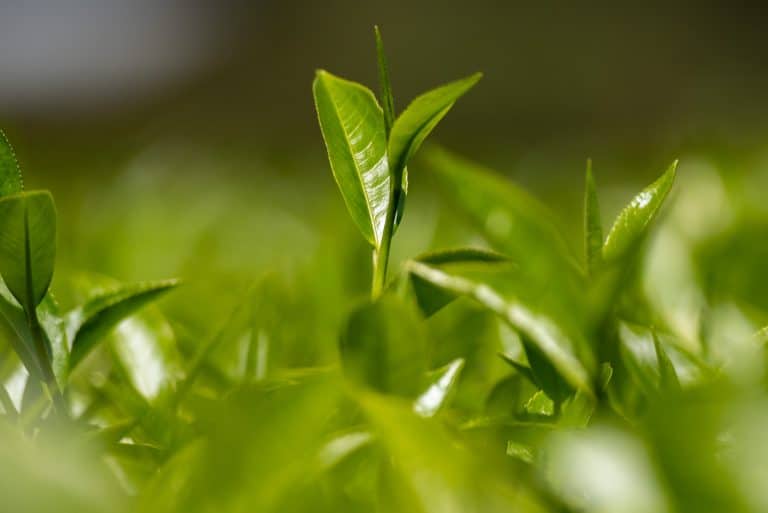Today’s consumer is more discerning than ever before. Taste and price are not the only deciding factors in beverage purchases, as more and more consumers look for functional and ethical products that fit their aspirational lifestyles.
Introducing Tea Extracts
Tea extracts are concentrated forms of tea that capture the essential compounds and flavours found in tea leaves. They are derived through a meticulous process that involves carefully selecting and processing the leaves to retain their valuable components.
Finlays’ portfolio boasts a wide array of tea extracts suited to a variety of needs. We work collaboratively with brand owners to help craft the optimum solution to meet the growing demands of today’s consumers.
How Do Tea Extracts Work?
Many tea extracts are created by isolating the bioactive compounds present in tea leaves, including polyphenols, catechins, and antioxidants[1]. Through meticulous extraction methods, these compounds are concentrated into a potent liquid or powder form and incorporated into different products.
The extraction process involves careful control of factors such as temperature, pressure, and solvent choice to ensure the preservation of the beneficial properties while enhancing the extract’s usability in diverse applications.
What are the health benefits of tea extracts?
Tea, the second most consumed beverage globally following water, goes beyond mere hydration and comfort. An abundance of scientific literature extols the virtues of tea on health.
While there isn’t a single miraculous molecule in tea, numerous intricate chemical processes within this beverage underpin its many purported benefits. Hence, tea has earned the moniker of the ‘overlooked nutraceutical.’ The catechins in green tea, for example, have been found to have a high antioxidant potential and have been associated with reducing the risk of obesity, oxidative stress and cardiovascular disease.
Moreover, tea is perceived to contribute to dental well-being through its fluoride content[2], aids in regulating blood pressure[3], curtails cardiovascular disease mortality[4], improves gut health[5]and even lowers the likelihood of developing rheumatoid arthritis[6].
Tea extracts contain phenolic compounds which are linked to various well-being benefits. The main phenolic compounds in different tea varieties are catechins, which have been associated with reducing the risk of obesity, oxidative stress and cardiovascular disease[7] as well as flavonoids, phenolic acids, tannins and anthocyanins[8].
The benefits of sourcing tea extracts from Finlays
At Finlays, we draw on decades of tea extraction experience. Finlays is ideally placed to help brand owners unlock the high-growth potential of natural beverages.
Trusted leaders with a global network
Founded in 1750, Finlays is one of the world’s largest tea extract producers, by volume, with an extensive global tea extract manufacturing network that spans Kenya, China and Chile. This gives our customers access to a flexible portfolio of tea extracts to meet their exact needs.
A fully transparent supply chain
Thanks to our vertically integrated supply chain Finlays provides tea extracts that are fully traceable from bush to cup. This decreases risk, offers peace of mind on product quality and provenance, and increases consistency of production and supply.
Stronger on sustainability
Sustainability is one of the core values at the heart of how we operate. This is guided by our sustainability strategy Sustainable Future and driven by our global sustainability community of change agents with technical expertise. For our customers, this means reduced risk as well as the ability to tap into the increasing consumer demand for sustainably and ethically sourced products. All of Finlays’ tea extracts are 100% traceable and certified – Finlays partners with brands that share in our mission to create social, environmental and economic change.
Technical excellence
When you partner with Finlays, you get the benefit of tea extraction expertise from a business that pioneered the process nearly 60 years ago in Kenya. Today, our Global Technical and Quality Assurance Teams play a vital role in ensuring ingredient consistency and integrity as well as regulatory compliance.
Understanding of the global and local consumer
With consumer demand evolving rapidly, we understand the value of being able to pinpoint what your consumer is looking for, even if they themselves don’t realise it yet. Thanks to our Global Insights Team, Finlays is ideally placed to partner with our customers to tap into these trends.
Applications expertise
Finlays doesn’t just supply you with tea extracts, we help you to unlock long-term value through our proven applications expertise. Whatever your desired application, we can work with you to choose the right extract to create the perfect product for your needs.
Finlays’ extensive range of meticulously crafted tea extracts encapsulates the essence of tea leaves, delivering unparalleled depth of flavour and valuable health benefits. Partnering with Finlays means embracing a legacy of expertise spanning nearly six decades. Explore our diverse portfolio tailored to your exact requirements with our range of tea extracts beverages, and discover the art of tea perfection. Elevate your brand with Finlays today, and get in touch!
Notes and references
[1] Scalbert, A. et al. 2005. Polyphenols: antioxidants and beyond. Am. J. Clin. Nutr. 81, 215S–217S
[2] Tea is naturally high in fluoride, having between 0.07 to 1.5 mg/serving (depending on the amount of water used). Daily Adequate Intake (DAI) for male over the age of 19 is 4 mg/day and for females 3 mg/L. Institute of Medicine, Food and Nutrition Board. 1997 Dietary Reference Intakes for Calcium, Phosphorus, Magnesium, Vitamin D, and Fluoride. Washington, DC: National Academies Press; Passmore AP, Kondowe GB, Johnstone GD. 1987 Renal and cardiovascular effects of caffeine: a dose response study. Clin Sci; 72:749–756.
[3] Hodgson, J. et al. 2013 Black tea lowers the rate of blood pressure variation: a randomized controlled trial, The American Journal of Clinical Nutrition, Volume 97, Issue 5, Pages 943–950, https://doi.org/10.3945/ajcn.112.051375
[4] As found by cohort studies of more than 40,000 participants. Kuriyama et al. 2006 n=40,530, Zhao et al. 2017 n= 115,954, Tang et al. 2015 meta data study on 18 cohort studies
[5] Bond, T. et al. 2019 Tea Compounds and the Gut Microbiome: Findings from Trials and Mechanistic Studies. Nutrients. 11(10):2364. doi:10.3390/nu11102364
[6] Mikuls et al. 2002, Coffee, tea, and caffeine consumption and risk of rheumatoid arthritis: Results from the Iowa Women’s Health Study. Arthritis & Rheumatism, 46: 83-91. https://doi.org/10.1002/1529-0131(200201)46:1<83::AID-ART10042>3.0.CO;2-Dn=31,336
[7] Hinton, T. et al. 2019, Effect of GABA-Fortified Oolong Tea on Reducing Stress in a University Student Cohort Frontiers in Nutrition, VOL 6, pages 27, DOI=10.3389/fnut.2019.00027
[8] Nagao, T. et al. 2007 A green tea extract high in catechins reduces body fat and cardiovascular risks in humans. Obesity (Silver Spring). Jun;15(6):1473-83. doi: 10.1038/oby.2007.176. PMID: 17557985





